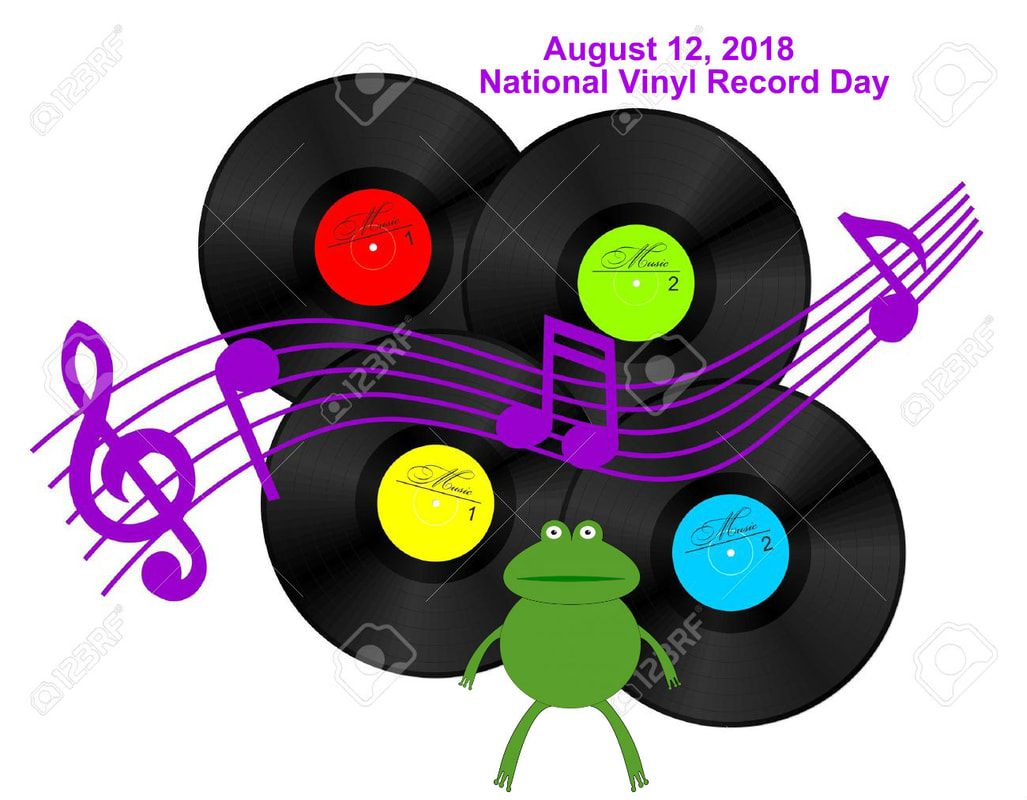Vinyl records came in various sizes. 45 rpm, 78 rpm and 33 rpm (revolutions per minutes). A 45, for example, is 7 inches in diameter and generally contained two songs; one on each side. If you're old enough to ever have owned a record, whatever its size, you can probably recall how you reverently pulled it out of the jacket and then the paper sleeve, and carefully placed it on your record player. they scratched easily and both scratches and fingerprints could make them skip. But no matter the size of the record, which the music company produced it, or who the artist was, vinyl records always had one thing in common...they were always black. Ever wonder why that was? If your inquiring mind wants to know, I have the answer.
Records are made from PVC, polyvinyl chloride is actually clear in its natural state. This means that it can be made into just about any color. So, if that's the case why, then, was it decided that records should be black? There are several theories on this subject but none of them seem really good.
1. The carbon black material that was used to color the PVC structurally made the end-product stronger. In the late 19th century and early 20th century, manufacturers used shellac, a brittle resin-like substance produced by insects, to press their records. "In order to ensure that the shellac held up, manufacturers would add ground up stone and carbon black powder to the mix in order to strengthen the otherwise brittle material. Of course, this is unnecessary in modern record pressing. Vinyl is tough enough on its own. And even if such supplements were necessary, there simply isn’t enough carbon black added to today’s records to make a difference on its own." So much for that theory.
2. Theory number 2 believes that records were made black to hide the flaws in the vinyl. This may have been true in the days of the shellac records, modern techniques allow for perfect, clear, and defect-free pressings. Modern manufacturers don't need to worry about trying to cover up the bits and pieces of ground up stone and bugs like they did early last century. Okay, not great for the second theory. Let's look at #3.
3. Some folks believe that black carbon could reduce friction in the grooves of the record and thus improve sound quality. Carbon is used as a dry lubricant in many fields, but there isn't any record of that being the case for vinyl records. "This theory may have come from the fact that shellac records contained a small amount of other lubricants to ensure they released from the mold easily. One of the reasons that PVC is a perfect material for pressing records is its smoothness, which minimizes friction between the record grooves and the needle and eliminates the need for additional lubrication (although groove lubricant does exist)." Nope. probably not that reason, either.
Here's a more modern theory that seems to make the most sense. Willem Ytsma, a pressing staff engineer at Furnace Records dug a little deeper in the question of why records are black. Researching the pigmentation of records, Willem stumbled upon a patent for a conductive phonograph record, and in that patent lies the answer.
"PVC is a natural insulator, meaning that it will build up a static charge over time as it’s handled and interacts with other objects. Due to the fact that static electricity attracts dust, that insulative property could be potentially disastrous for records. Any dust that accumulates in a record’s grooves will grind in between the needle and the groove wall when played, wearing down both the groove and the needle, and potentially even becoming permanently lodged in the wall. Carbon has conductive properties, so adding it to the PVC increases the overall conductivity of the material, lessening the accumulation of static, and therefore, dust, on a record. By coloring records black with carbon-based pigment, manufacturers ensure their records last longer and sound better.
So, there you have. The real reason why vinyl records are mostly always black. By the way, today is National Lazy Day. This might mean leaving work a little early today...or playing "hooky" and starting the weekend early!
Whatever your plans are this weekend relax, kick back, and enjoy life. I hope you'll join me back here on Monday. But until then, stay well, stay safe.
PEACE.

 RSS Feed
RSS Feed